
In December 1950, five months into the Korean War, Chinese forces drove American troops into retreat near the reservoir in Changjin. “It was 40 degrees below zero, and the wind was coming down out of Mongolia,” says war photographer David Douglas Duncan. “I was freezing.” As the threat of a Chinese onslaught loomed in the background, Duncan roamed the encampment with his camera. Sixty years later he can still remember approaching one soldier on the verge of freezing who stood clutching a can of food. “I asked him, ‘If I were God, what would you want for Christmas?’” Duncan says. “He just looked up into the sky and said, ‘Give me tomorrow.’”
Duncan, now 95, has seen plenty of tomorrows—something denied to many of the men he photographed. During World War II he covered the battles for Okinawa and Bougainville as a combat photographer with the Marine Corps. The strength of his work led to a staff position with LIFE Magazine in 1946. He went on to make some of the most indelible images from the Korean War, where he shot the two-week battle of Chosin, and Vietnam, where he documented the deadly clashes at Con Thien and Khe San. At the latter battle—as in so many others—his subjects questioned his sanity for choosing to snap amid the bombs and bullets. “The sergeant said, ‘Get your ass down,’” Duncan remembers. “I said, ‘Don’t you understand? I’m trying to immortalize you!”
Duncan credits LIFE magazine, which was launched 75 years ago today, with giving him an unparalleled platform for doing what he loved. “LIFE was it. There was nothing else. There was no television,” he says. “You walked in somewhere and you were a king.” Three days after joining the magazine’s staff he found himself in Persia, where Russian tanks were poised to invade Tehran. By November he landed his first LIFE cover on Palestine. He subsequently witnessed the British leaving India, became the first Westerner to photograph the treasures inside the Kremlin and captured the Egyptian revolution that brought down King Farouk.
He sustained some battle scars along the way. On Okinawa a piece of shrapnel flew into his left wrist. He taped it up and got back to work. And in Vietnam exploding mortar blew out his left eardrum. None of it was ever enough to put him off the profession: “I could walk out any time I wanted to. These guys couldn’t.”
Capturing the troops’ terror—and their will to live—remains a hallmark of his work. One of his most haunting images comes from September 1950. Two U.S. marines are seen running through a ditch past an enemy corpse near the Naktong River in South Korea. “The North Koreans were firing machine guns at them from a couple of hundred meters behind me,” Duncan says. They both died shortly after the photograph was taken.
Despite dodging the very bullets that took the lives of those marines, Duncan maintains that there’s nothing special about his efforts to get that photo—or the many that came before. “I’m not proud of any of it. I just did my job and showed who the guys were and how they lived their life,” he says. “But I am very pleased I showed people what the world was like during my time.”

William Lee Adams is a staff writer at the London bureau of TIME. Find him on Twitter at @willyleeadams or on Facebook.




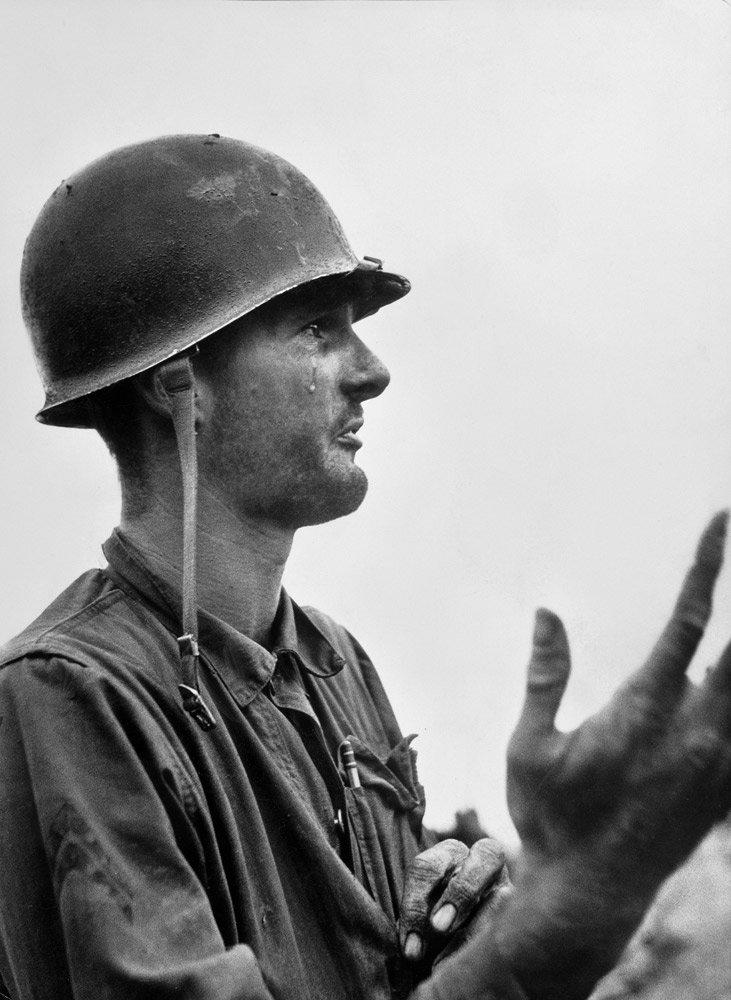
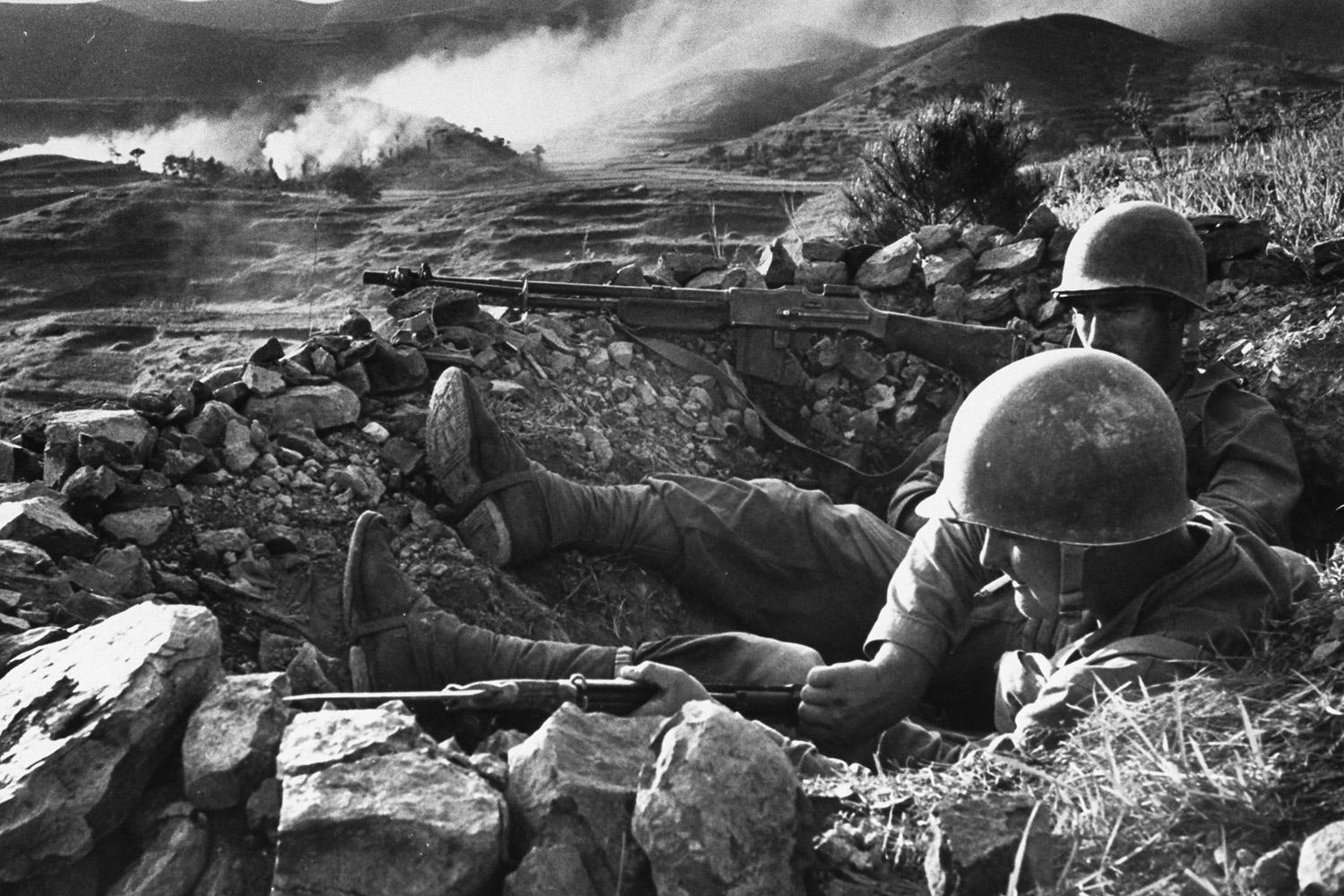

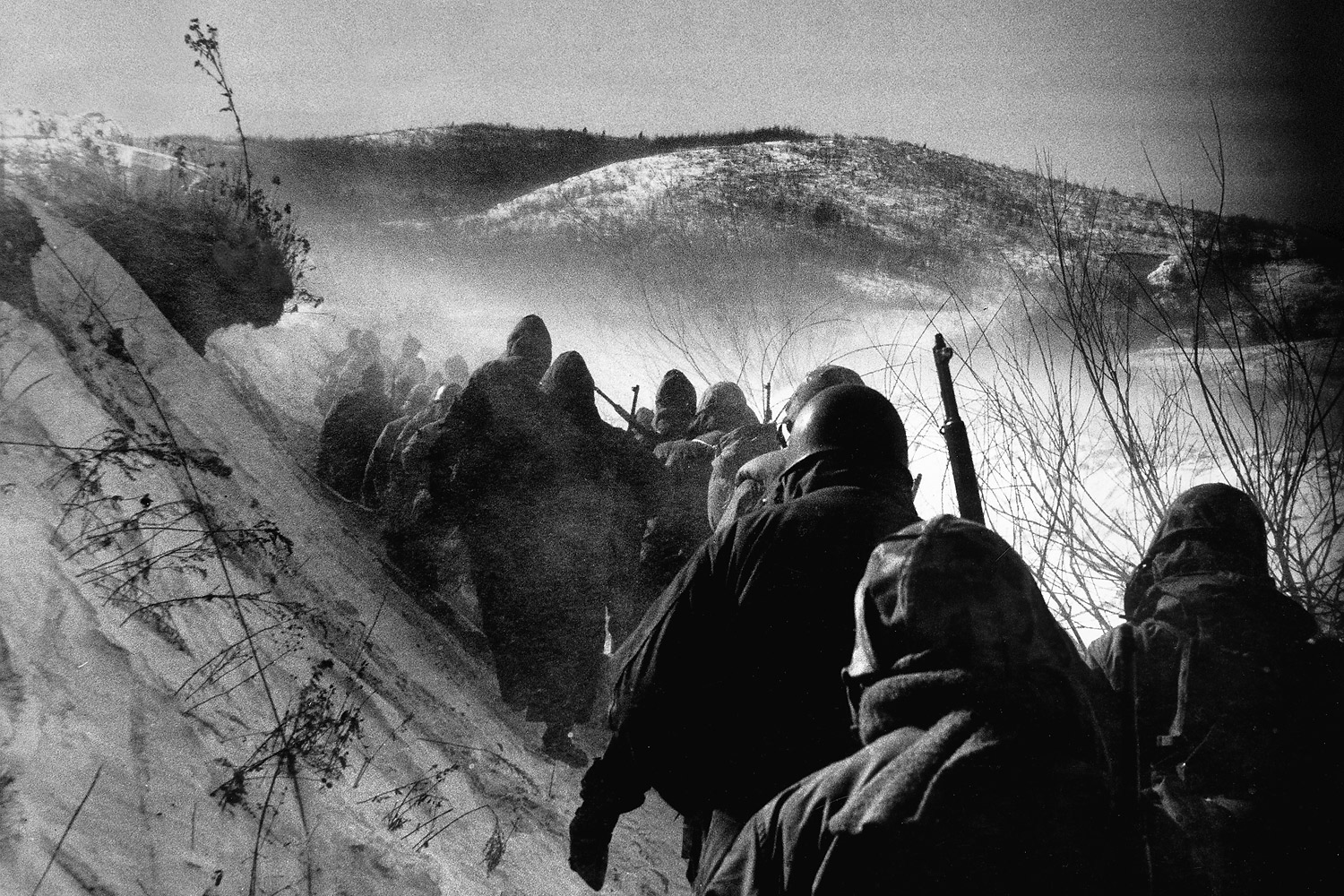
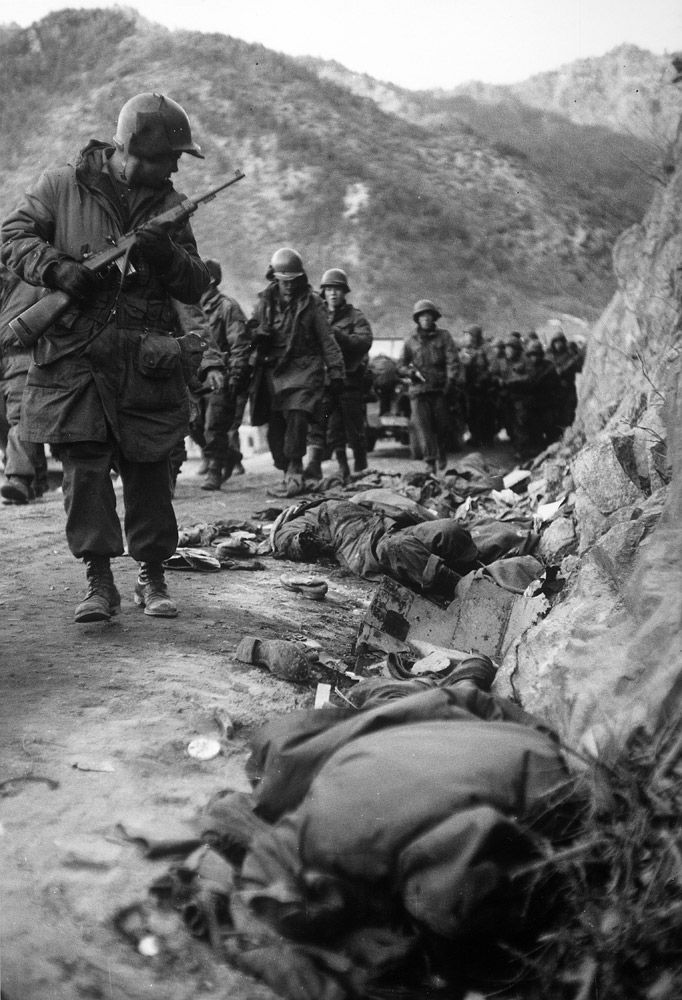
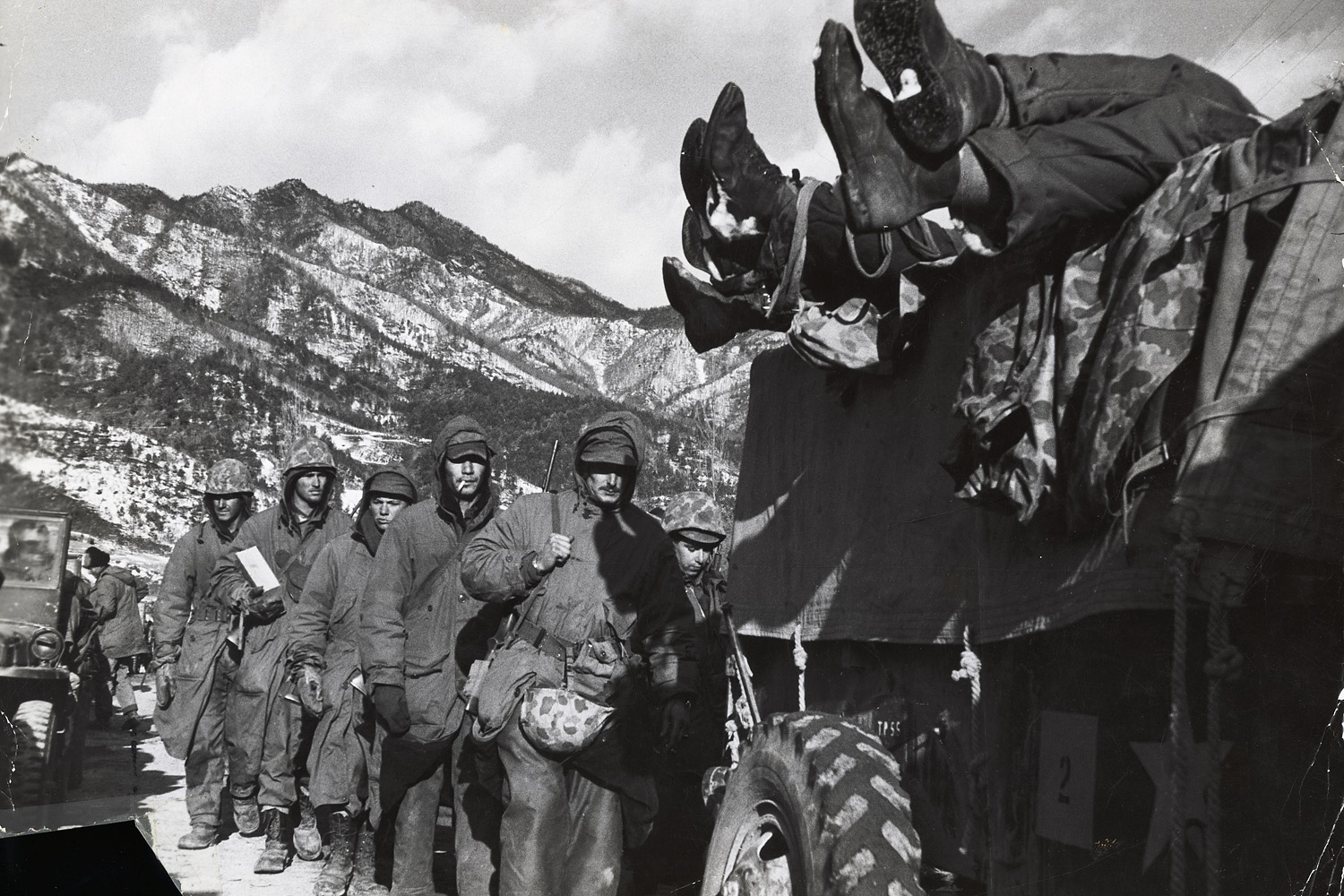


More Must-Reads from TIME
- How Donald Trump Won
- The Best Inventions of 2024
- Why Sleep Is the Key to Living Longer
- Robert Zemeckis Just Wants to Move You
- How to Break 8 Toxic Communication Habits
- Nicola Coughlan Bet on Herself—And Won
- Why Vinegar Is So Good for You
- Meet TIME's Newest Class of Next Generation Leaders
Contact us at letters@time.com